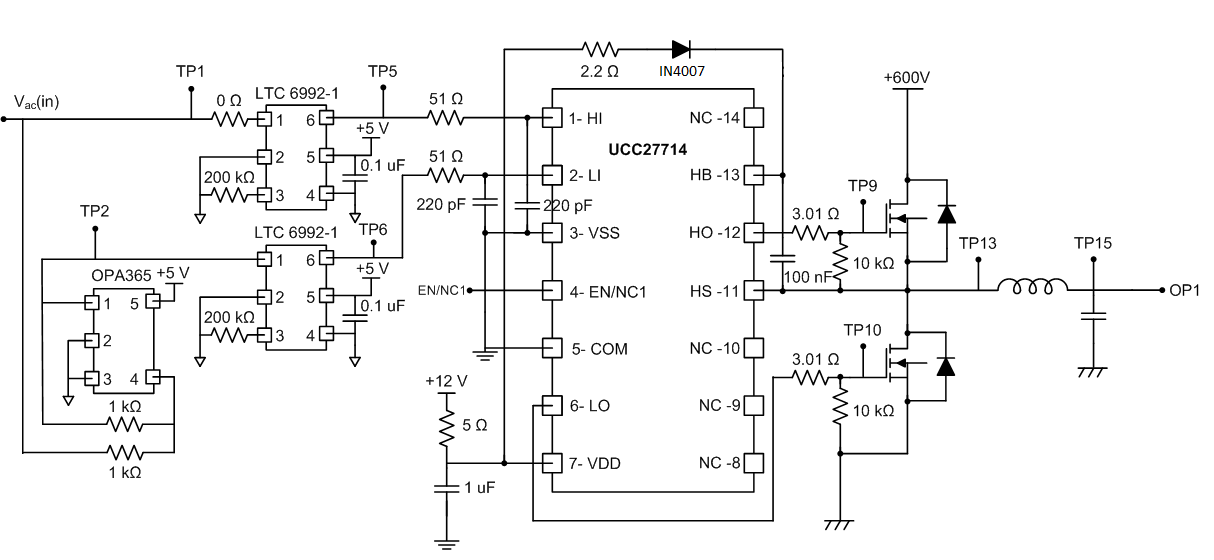Hi,
I am using UCC27714 driver to drive two MOSFETs in half-bridge configuration. I following the circuit given in application note for UCC27714 driver. The negative side (lower MOSFET) is turning on but upper side (upper MOSFET) is not turning on. Please suggest a solution.



